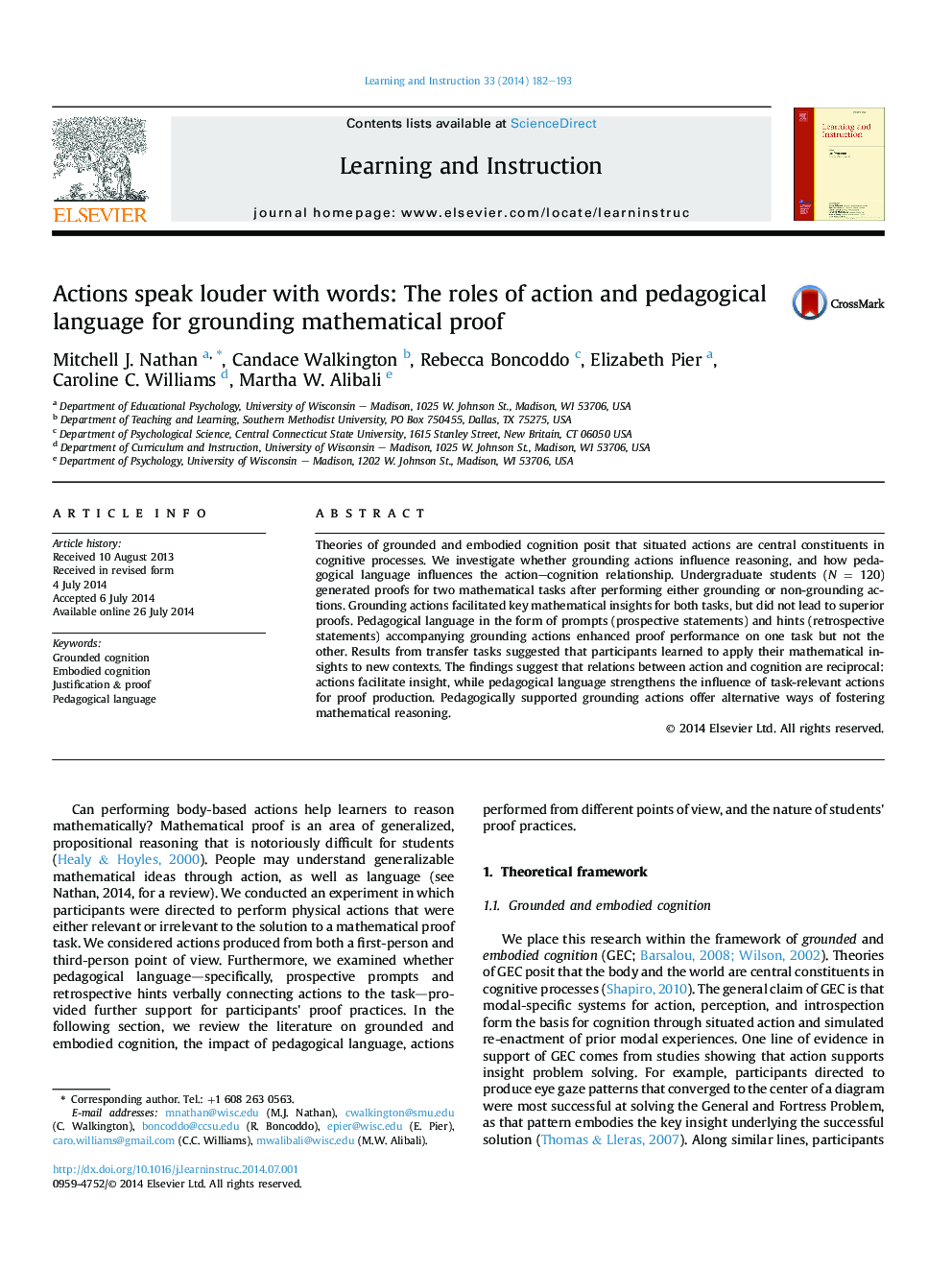| کد مقاله | کد نشریه | سال انتشار | مقاله انگلیسی | نسخه تمام متن |
|---|---|---|---|---|
| 365570 | 621202 | 2014 | 12 صفحه PDF | دانلود رایگان |
• Embodied theories of cognition posit reciprocity between action and cognition.
• Actions may aid construction of conceptual knowledge, even unconsciously.
• Performing grounding actions facilitated key mathematical insights.
• Pedagogical language accompanying grounding actions enhanced some proof practices.
Theories of grounded and embodied cognition posit that situated actions are central constituents in cognitive processes. We investigate whether grounding actions influence reasoning, and how pedagogical language influences the action–cognition relationship. Undergraduate students (N = 120) generated proofs for two mathematical tasks after performing either grounding or non-grounding actions. Grounding actions facilitated key mathematical insights for both tasks, but did not lead to superior proofs. Pedagogical language in the form of prompts (prospective statements) and hints (retrospective statements) accompanying grounding actions enhanced proof performance on one task but not the other. Results from transfer tasks suggested that participants learned to apply their mathematical insights to new contexts. The findings suggest that relations between action and cognition are reciprocal: actions facilitate insight, while pedagogical language strengthens the influence of task-relevant actions for proof production. Pedagogically supported grounding actions offer alternative ways of fostering mathematical reasoning.
Journal: Learning and Instruction - Volume 33, October 2014, Pages 182–193
